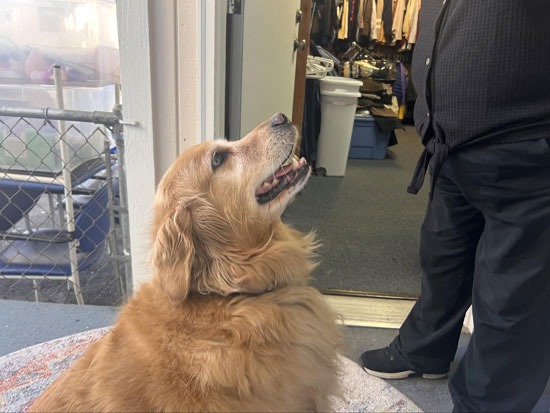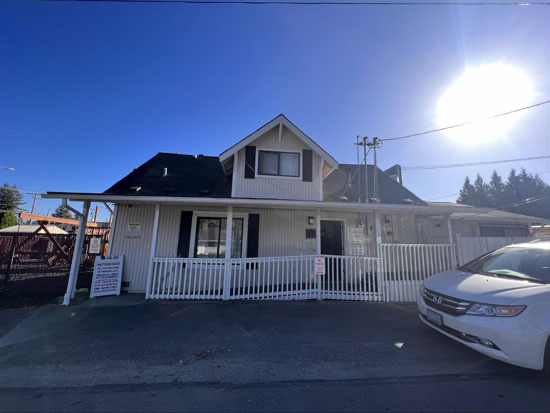MONROE — Unemployed and homeless, Shirley Lidel, 73, was desperate to find housing near the Monroe Correctional Complex, where her husband, Michael Lidel, had been incarcerated.
Commuting from Federal Way every week with a neck injury took a toll on her. She had looked for affordable housing near the prison but to no avail. As she waited to visit her husband Michael at the prison, she asked the other women visiting loved ones if they knew of any place to stay. They had no affordable answers.
Thankfully, a guard at the prison had heard her distressed conversation with the other women. The guard ushered her away and instructed her to go to a house down the hill. A lady will be waiting for her with a room.
"So I went and did all that," Lidel said. "I went back to the visit to let Michael know that I wasn't gonna be sleeping in my car anymore because Matthew House gave me a room that I could stay in."
Matthew House contains countless stories from families just like this. Incarcerated family members often leave behind families to fend for themselves. As a result, many families end up falling into poverty and homelessness.
Being shunned by their communities and shamed for having incarcerated family members takes a mental toll, especially on children. According to the National Institute of Justice, the children of the incarcerated are, on average, six times more likely to become incarcerated themselves.
Linda Paz, the director at Matthew House, says that she aims to end that cycle with the support Matthew House provides.

Aisha Misbah photo
Gloria is a service dog who is often at Matthew House. She brings comfort to people at the House, especially children.
Purchased in 1980 by The Rev. Richard Stohr with the help of donors, Matthew House, located on 177th Avenue SE and W. Main Street, was transformed into a nonprofit Christian organization to help the families of the incarcerated. Since then, the House has helped more than 1 million families.
Lidel stayed at Matthew House for about a month until she could afford a place in Snohomish. After that, she kept coming back to Matthew House to volunteer and help out other women just like her. Fourteen years later, she now happily lives with her husband, who was released two years ago, in Auburn.
Linda Paz started working at Matthew House 20 years ago. She has seen people from all over the world come to Matthew House for help. The House accepts everyone, regardless of race, religion or gender.
Since the government does not supply any funding for the families of the incarcerated, Matthew House helps families meet all kinds of needs. It provides food, clothing, housing and even a van service to prisons for visits.
The House has a common area, public bathrooms, a kitchen, a playground and three fully furnished apartments. Families must sign in at the front desk with their six-digit inmate identification number provided by the Department of Corrections. From there, they can take as much food as they want from the pantry, look for clothing and stay in the apartments without judgment.
Frequently, families come into the House distressed because their clothing didn’t pass the dress code for visiting the prison. The rules require clean clothes, and include no khakis, cargo pants, crop tops, or hoodies.
“They'll run in here a lot of time in tears," Linda said. "And since they come in, we know what they need. Everything we get that’s donated, we go through first to see if it’s something they can wear into the prison."
Matthew House runs on donations and receives no government funding, so every donation goes a long way. Paz explains that when people decide to donate to places, the families of prisoners are not people they would think of at first. She encourages people to come to Matthew House to see what kind of work they do.
Matthew House raises between $125,000 and $175,000 annually, as well as in-kind gifts such as clothing, food, and toys.
"We can’t operate if we don’t get this kind of support," Paz said.
Diana Pinneo, 87, has volunteered at the Matthew House for eight years. She describes how she came to volunteer there. For 22 years, she and her husband had a soup kitchen for inner-city children until she met Paz through her work.
"I went there (Matthew House) and met Linda, and she stood for everything I stand for," Pinneo said. "I decided it was a place I could give my energy to."
Matthew House isn’t just a place to meet necessities for families but also a place for the community. Lidel talked about her experience when she stayed at the House. Every Saturday on visiting day, pizzerias would donate pizzas to the House. Then, as the others met their loved ones at the prison, she would prepare the pizza in one of the apartments, turn on the radio, and wait for the others to return. Then, they would just sit and talk.
"It was fun being able to talk the way we wanted to talk and have the feelings we had," Lidel said. "And be able to share them with other people that were feeling some of the same things. And just be able to talk about it, laugh about it, pray about it and hug each other about it and say, "˜See you next visit.’ We had so much fun."
Matthew House is always looking for donations. Donors can call (360) 794-8720 to ask them what they need. It is also safe to leave donations such as clean clothing and toiletries at the front door.

Aisha Misbah photo
Matthew House includes three bedrooms to provide temporary stays to out-of-area families of prisoners who were incarcerated or transferred into Monroe’s prison.